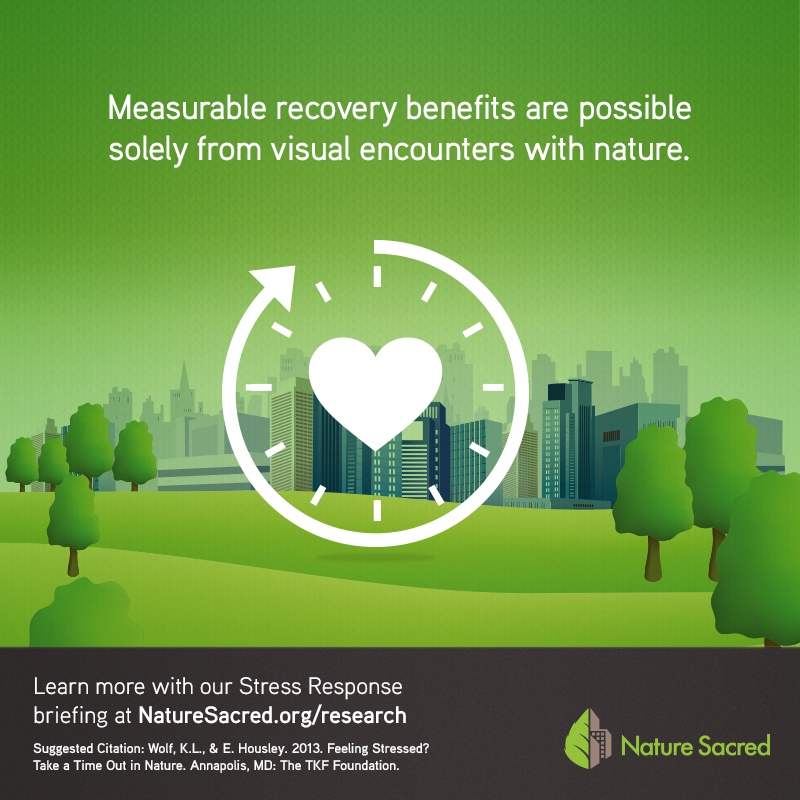Can I benefit from simply viewing trees or a garden from my window?
“Research evidence shows that environments with natural elements have restorative or stress reducing effects, more so than those without nature. Views of nature (such as trees water, or a garden) appear to have more positive influences on psychological and physiological states, compared to those urban scenes that lack natural elements. These effects appear whether one is in a natural environment (1) or looking out at nature through a window (2). In a key study, a stress inducing movie was presented to study subjects, then each viewed one of six videos depicting various built hardscapes and natural environments (3). Response measures included self-rated stress levels and objective physiological indicators such as heart rate, muscle tension, skin conductance and pulse transit time (which correlates with systolic blood pressure). Recovery was faster and more complete for individuals that viewed natural versus built settings. With natural views, stress recovery happened remarkably fast—within minutes. Other research findings also break down components of natural environments and show that simply viewing nature helps restore mental fatigue (4) (5) (6) .”
For more about the healing power of nature: Feeling Stressed? Take a Time Out in Nature
1. Hartig, T, M Mang, & GW Evans. 1991. Restorative effects of natural environment experiences. Environment and Behavior 23, 1: 3-26.
2. Kaplan, R. 2001. The nature of the view from home: Psychological benefits. Environment and Behavior 33, 4: 507-42.
3. Ulrich, RS, RF Simons, BD Losito, E Fiorito, MA Miles, & M Zelson. 1991. Stress recovery during exposure to natural and urban environments. Journal of Environmental Psychology 11, 3: 201-30.
4. Kaplan, R, & S Kaplan. 1989. The Experience of Nature: A Psychological Perspective. Cambridge University Press.
5. Berto, R. 2007. Assessing the restorative value of the environment: A study on the elderly in comparison with young adults and adolescents. International Journal of Psychology 42, 5: 331-41.
6. Kaplan, S. 1995. The urban forest as a source of psychological well-being. In: Bradley, GA (ed.), Urban Forest Landscapes: Integrating Multidisciplinary Perspectives. University of Washington Press, pp. 17-40.

